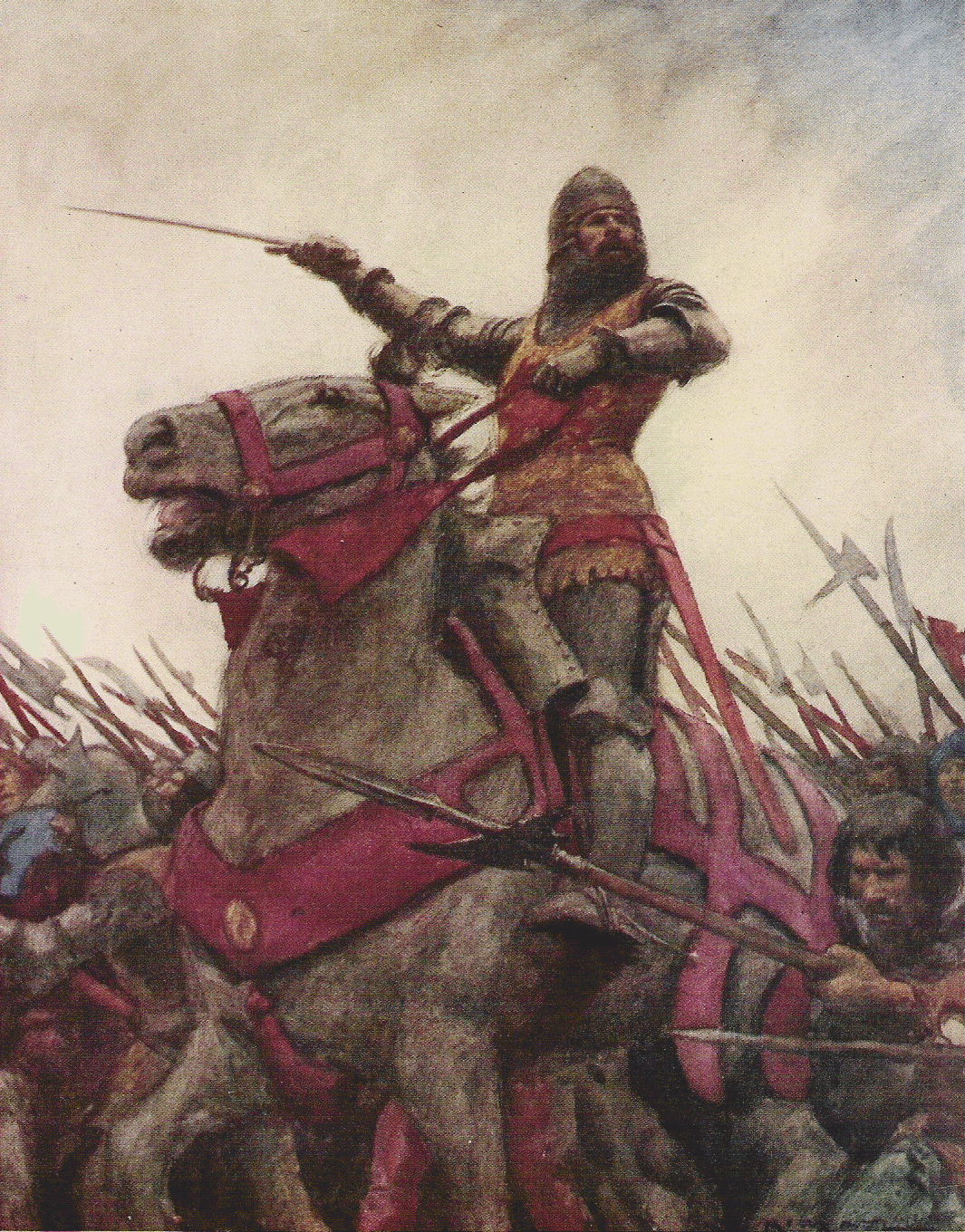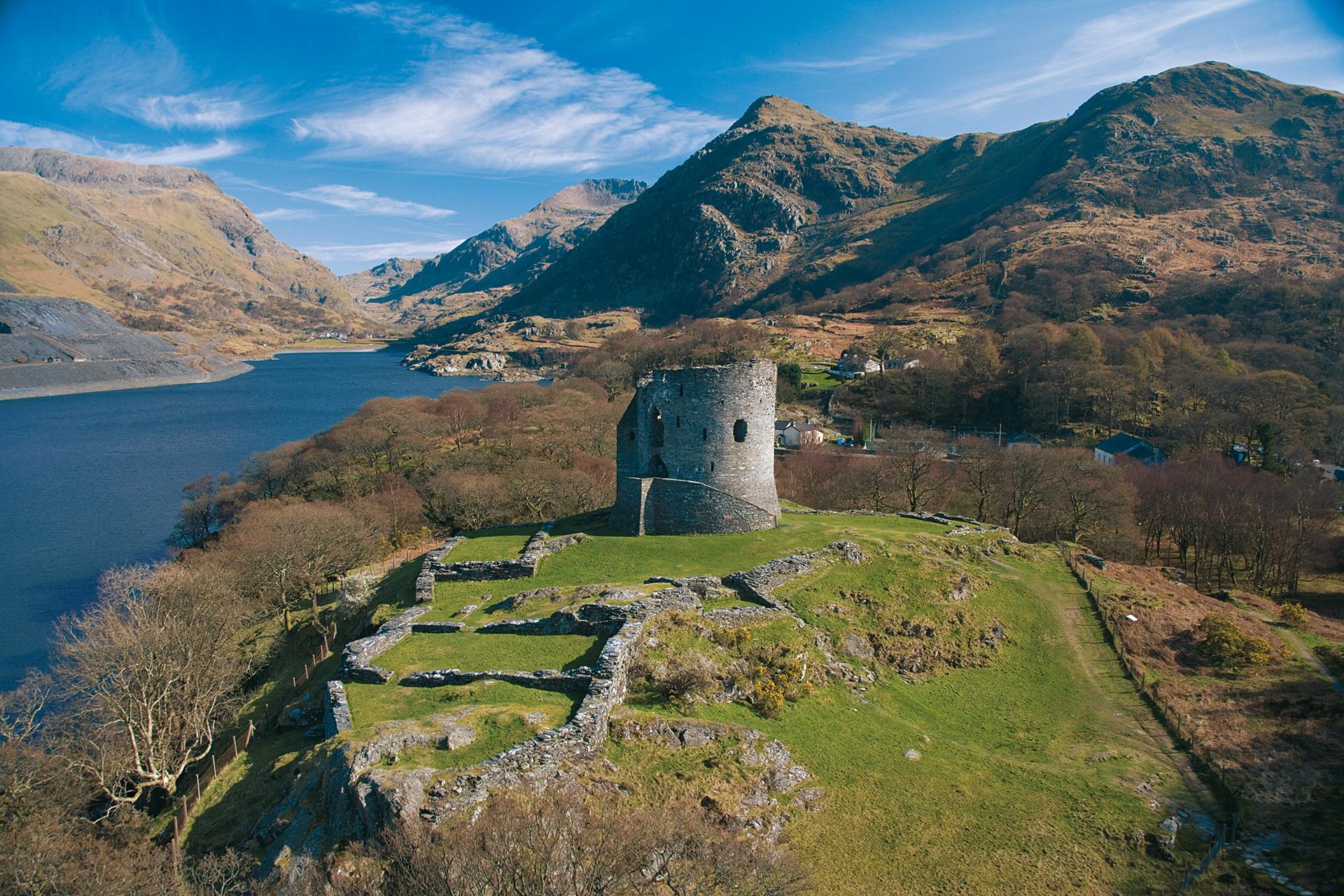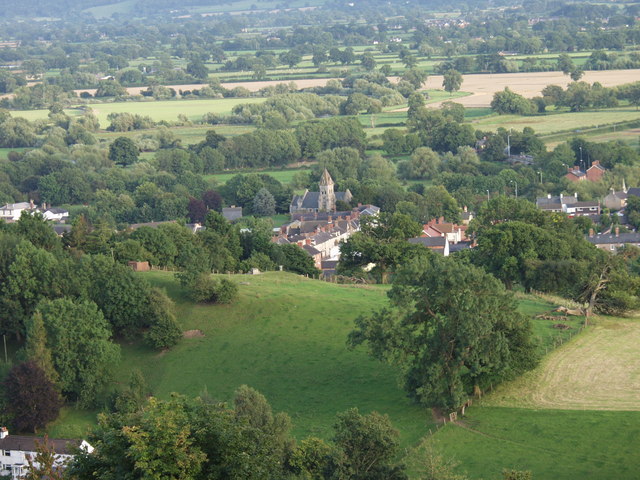|
Owain (other)
Owain () is a name of Welsh origin, variously written in Old Welsh as Ougein, Eugein, Euguen, Iguein, Ou(u)ein, Eug(u)ein, Yuein, and in Middle Welsh as Ewein, Owein, and Ywein. Other variants of the name Owain include Ewein, Iguein, Owein, Ouein, Ywen, Ywein, Ywain, Yuein, and Yvain. Owain has also been Latinized as ''Oenus''. Etymology Osborn Bergin proposed that the name is cognate with Old Irish ''Ugaine'', ''Augaine'', and suggested that the Irish name could be a British loan. Linguist Kenneth H. Jackson proposed that the name is a derivation of the Latin ''Eugenius'', (which was more recently accepted by T.J. Morgan). Julius Pokorny favored a purely Celtic origin, from Brittonic ''*Ouo-genios''/''*Owi-genjos'', "Born of Sheep", "Sheep kin". Linguists Holger Pedersen and Henry Lewis (who earlier linked the name to Gaulish *Esugenos) determined that both Jackson's and Pokorny's etymologies were phonologically impossible. Welsh folklore In Welsh folklore, the name ''Owain'' is ... [...More Info...] [...Related Items...] OR: [Wikipedia] [Google] [Baidu] |
Old Welsh
Old Welsh () is the stage of the Welsh language from about 800 AD until the early 12th century when it developed into Middle Welsh.Koch, p. 1757. The preceding period, from the time Welsh became distinct from Common Brittonic around 550, has been called "Primitive"Koch, p. 1757. or "Archaic Welsh". Phonology The phonology of Old Welsh is as follows. * Older was diphthongized into in (stressed) final syllables, but it was retained elsewhere. Whilst this persisted as a diphthong in Middle Welsh, in Modern Welsh /aw/ has collapsed to following the stress shift to the penultimate, except in monosyllables. * and were allophones of and in unstressed non-final syllables. In Middle Welsh these merged to . * Old Welsh and became and in Modern Welsh final syllables, in dialects where /ɨ/ has not merged with /i/. Texts The oldest surviving text entirely in Old Welsh is understood to be that on a gravestone now in Tywyn – the Cadfan Stone – thought to date from the ... [...More Info...] [...Related Items...] OR: [Wikipedia] [Google] [Baidu] |
Owain Ap Hywel (Glywysing)
Owain ap Hywel (died Ford, David. ''Early British Kingdoms'':. Accessed 20 Feb 2013.) was a king of Glywysing and Gwent in southeastern Wales. Owain's father Hywel was king of Glywysing until his death around AD 886. Although the unified kingdom of Glywysing and Gwent became known as Morgannwg in honor of Owain's son Morgan the Old, Charles-Edwards argues that it is probable that the two realms were already united during Owain's reign.Charles-Edwards, T. Wales and the Britons, 3501064', p. 495. Oxford Univ. Press, 2012. Accessed 20 Feb 2013. Owain or his brother Arthfael must have gained control of Gwent by conquest or inheritance from the previous rulers (their cousins), with the realm becoming united after Arthfael's death around 916. Along with Hywel the Good, Owain met with King Æthelstan of Wessex following the latter's conquest of Northumbria. Around 927, he and Hywel "established peace with pledge and oaths" at Eamont Bridge near Penrith.Stafford, Pauline (ed.) ''A C ... [...More Info...] [...Related Items...] OR: [Wikipedia] [Google] [Baidu] |
Owain Arthur
Owain Arthur (born 5 March 1983) is a Welsh actor, who rose to fame playing Francis Henshall in The National Theatre's production of '' One Man, Two Guvnors'' at the Theatre Royal Haymarket. His early years were spent in Bangor, Wales, filming the S4C series '' Rownd a Rownd'', whilst attending the performing arts school, Ysgol Glanaethwy. Arthur then trained at the Guildhall School of Music and Drama in London. He has played many roles in the theatre including ''Romeo and Juliet'' for the Royal Shakespeare Company, ''Comedy of Errors'' at the Royal Exchange Theatre and Birdsong at the Comedy Theatre. He has also worked extensively in UK TV roles. He also voiced Lofty in the 2018 video game '' Ni no Kuni II: Revenant Kingdom''. Since 2022, he played the Dwarven Prince Durin IV in '' The Lord of the Rings: The Rings of Power'' on Amazon Prime. Co-star Morfydd Clark mentioned enjoying speaking in Welsh on-set with Arthur and Trystan Gravelle. In 2023, he played Nathan D ... [...More Info...] [...Related Items...] OR: [Wikipedia] [Google] [Baidu] |
Owen Tudor
Sir Owen Tudor (, – 2 February 1461) was a Welsh courtier and the second husband of Queen Catherine of Valois (1401–1437), widow of King Henry V of England. He was the grandfather of Henry VII, founder of the Tudor dynasty. Background Owen was a descendant of a prominent family from Penmynydd on the Isle of Anglesey, which traces its lineage back to Ednyfed Fychan (d. 1246), a Welsh official and seneschal to the Kingdom of Gwynedd. Tudor's grandfather, Tudur ap Goronwy, married Margaret, daughter of Thomas ap Llywelyn ab Owain of Cardiganshire, the last male of the senior branch of the princely house of Deheubarth. Margaret's elder sister married Gruffudd Fychan of Glyndyfrdwy, whose son was Owain Glyndŵr. Owen's father, Maredudd ap Tudur, and his uncles were prominent in Owain Glyndŵr's revolt against English rule, the Glyndŵr Rising. Historians consider the descendants of Ednyfed Fychan, including Owen Tudor, one of the most powerful families in 13th to 14th-ce ... [...More Info...] [...Related Items...] OR: [Wikipedia] [Google] [Baidu] |
Owain Glyndŵr
Owain ap Gruffydd (28 May 135420 September 1415), commonly known as Owain Glyndŵr (Glyn Dŵr, , anglicised as Owen Glendower) was a Welsh people, Welsh leader, soldier and military commander in the Wales in the late Middle Ages, late Middle Ages, who led a Glyndŵr rebellion, 15-year-long Welsh revolt with the aim of ending Kingdom of England, English rule in Wales. He was an educated lawyer, forming the first Welsh parliament under his rule, and was the last native-born Welshman to claim the title Prince of Wales. During the year 1400, Glyndŵr, a Welsh soldier and Glyndyfrdwy, Lord of Glyndyfrdwy had a dispute with a neighbouring Peerage of England, English Lord, the event which spiraled into a national revolt pitted common Welsh countrymen and nobles against the English military. In response to the rebellion, discriminatory Penal laws against the Welsh, penal laws were implemented against the Welsh people; this deepened civil unrest and significantly increased support for ... [...More Info...] [...Related Items...] OR: [Wikipedia] [Google] [Baidu] |
Owain Ap Dafydd
Owain ap Dafydd ( – ), potential claimant to the title Prince of Gwynedd, was the younger son of Dafydd ap Gruffudd, the last free ruler of Gwynedd and the self-proclaimed Prince of Wales. Nothing is known of his early life, though it is thought he likely accompanied his father during exile in England in the 1270s. His mother was Elizabeth Ferrers. After the death of his uncle Llywelyn ap Gruffudd in late 1282, the governance of Gwynedd was assumed by his father Dafydd ap Gruffudd. After a brief struggle, he and his father were captured together, close to Bera Mawr, above Bethesda on 21 or 22 June 1283. Shortly after this, Dafydd was brought to Shrewsbury where he was executed for treason in October. Following the arrest of his elder brother Llywelyn on 29 June, they were both escorted under guard out of Gwynedd via Acton Burnell to Bristol Castle. Llywelyn died in 1287, while Owain was last reported to be alive in 1325 when he would have been in his fifties. During muc ... [...More Info...] [...Related Items...] OR: [Wikipedia] [Google] [Baidu] |
Owen De La Pole
Owen de la Pole (c. 1257 – c. 1293), also known as Owain ap Gruffydd ap Gwenwynwyn, was the heir presumptive to the Welsh principality of Powys Wenwynwyn until 1283 when it was abolished by the Parliament of Shrewsbury. He became the 1st Lord of Powis after the death of his father Gruffydd ap Gwenwynwyn c. 1287. He is not related to the English de la Pole family descended from William de la Pole, Chief Baron of the Exchequer in the following century, later Earls and Dukes of Suffolk. Early life and family Owen was born in England sometime after his father Gruffydd ap Gwenwynwyn was driven into exile there in 1257 by Llywelyn ap Gruffudd, ruler of the Kingdom of Gwynedd. It was during this exile that his father probably adopted the surname ''de la Pole'' meaning "of the Pool" and referring to the old name for Welshpool which had become his family's capital. Owen's mother was Hawise Lestrange, daughter of John Lestrange. His uncles were Hamo le Strange and Roger le Str ... [...More Info...] [...Related Items...] OR: [Wikipedia] [Google] [Baidu] |
Owain Goch Ap Gruffydd
Owain Goch ap Gruffudd (also known as ''Owain Goch'' wain the Red (died 1282) was brother to Llywelyn ap Gruffudd and Dafydd ap Gruffudd and, for a brief period in the late 1240s and early 1250s, ruler of part of the Kingdom of Gwynedd (in modern-day North Wales). Lineage Owain was the eldest son of Gruffudd ap Llywelyn ap Iorwerth and the grandson of Llywelyn ab Iorwerth (Llywelyn the Great). He was imprisoned together with his father in Criccieth Castle in 1239 by his uncle Dafydd ap Llywelyn and accompanied his father to England two years later when Dafydd was forced to hand Gruffudd over to King Henry III of England. In 1244 Gruffudd was killed when a makeshift rope broke as he attempted to escape from the Tower of London. This freed Dafydd ap Llywelyn's hand as King Henry could no longer use Gruffudd against him, and war broke out between him and King Henry in the spring of 1244. Owain meanwhile had been freed by Henry after his father's death in the hope that he would ... [...More Info...] [...Related Items...] OR: [Wikipedia] [Google] [Baidu] |
Owain Cyfeiliog
Owain ap Gruffydd (c. 1130–1197) was a prince of the southern part of Powys and a poet. He is usually known as Owain Cyfeiliog to distinguish him from other rulers named Owain, particularly his contemporary, Owain ap Gruffydd of Gwynedd, who is known as Owain Gwynedd. Owain was the son of Gruffydd ap Maredudd (and thus grandson of Maredudd ap Bleddyn) and nephew of Madog ap Maredudd, the last prince of the whole of Powys. Madog gave his nephew the cantref of Cyfeiliog to rule in 1147. On Madog's death in 1160 Owain became the ruler of most of southern Powys (this became known as Powys Wenwynwyn after it was inherited by his son). He married Gwenllian, one of the daughters of Owain Gwynedd. He is recorded as having been in alliance with the other Welsh princes to withstand the invasion of 1165 by King Henry II of England. Thereafter he usually followed a policy of supporting the English crown. In 1170, he gave land for the founding of the abbey of Strata Marcella. In 1188, ho ... [...More Info...] [...Related Items...] OR: [Wikipedia] [Google] [Baidu] |
Owain Fychan
Owain Fychan ap Madog (alternatively ''Owain Vychan ap Madoc''; c. 1125 – 1187) was styled Lord of Mechain, Mechain Is Coed and one of the sons of Madog ap Maredudd. His mother was Susanna, daughter of Gruffudd ap Cynan. Division of the Kingdom of Powys His eldest brother, Llywelyn, was killed soon after the death of his father in 1160, at which point Powys was shared between Madog's sons Gruffydd Maelor, Owain Fychan and Owain Brogyntyn, his nephew Owain Cyfeiliog and half-brother Iorwerth Goch ap Maredudd, Iorwerth Goch. Owain Fychan shared the southern portion of his father's territories with Owain Cyfeiliog. Working together they drove the English out of Carreghofa in 1163 (capturing and destroying the royal castle there, which was made of timber until fortified in stone in 1194) and Iorwerth Goch from Mochnant, Mochnant Is Rhaeadr in 1166. Owain Fychan now controlled Mechain, Cynllaith, Caereinion and Mochnant Is Rhaeadr. Carreghofa Castle was retaken by Henry II of Engl ... [...More Info...] [...Related Items...] OR: [Wikipedia] [Google] [Baidu] |
Owain Gwynedd
Owain ap Gruffudd ( – 23 or 28 November 1170) was King of Gwynedd, North Wales, from 1137 until his death in 1170, succeeding his father Gruffudd ap Cynan. He was called Owain the Great () and the first to be styled "Prince of Wales" and the " Prince of the Welsh". He is considered to be the most successful of all the North Welsh princes prior to his grandson, Llywelyn ab Iorwerth (Llywelyn the Great). He became known as Owain Gwynedd (, "Owain of Gwynedd") to distinguish him from the contemporary king of Powys Wenwynwyn, Owain ap Gruffydd ap Maredudd, who became known as Owain Cyfeiliog. Early life Owain Gwynedd was a member of the House of Aberffraw, the senior branch of the dynasty of Rhodri Mawr (Rhodri the Great). His father, Gruffudd ap Cynan, was a strong and long-lived ruler who had made the principality of Gwynedd the most influential in Wales during the sixty-two years of his reign, using the island of Anglesey as his power base. His mother, Angharad ferch Ow ... [...More Info...] [...Related Items...] OR: [Wikipedia] [Google] [Baidu] |
Owain Foel
Owain Foel (fl. 1018), also known as Owain Moel, Owain the Bald, Owen the Bald, and Eugenius Calvus, was an eleventh-century King of Strathclyde. He may have been a son of Máel Coluim, son of Dyfnwal ab Owain, two other rulers of the Kingdom of Strathclyde. Owain Foel is recorded to have supported the Scots at the Battle of Carham in 1018. Although it is possible that he died in the conflict, no source states as much, and it is uncertain when he died. Owain Foel may be an ancestor—perhaps the father—of a certain Máel Coluim who is described as the "son of the king of the Cumbrians" in the 1050s. Parentage Owain Foel seems to have been a member of the ruling dynasty of the Kingdom of Strathclyde. Clarkson (2014) chs. genealogical tables, 8 ¶ 7; Charles-Edwards (2013) p. 572 fig. 17.4; Woolf (2007) pp. 236, 238 tab. 6.4; Broun (2004c) pp. 128 n. 66, 135 tab.; Hicks (2003) p. 44, 44 n. 107; Duncan (2002) pp. 29, 41. For much of the tenth century, the kin ... [...More Info...] [...Related Items...] OR: [Wikipedia] [Google] [Baidu] |


